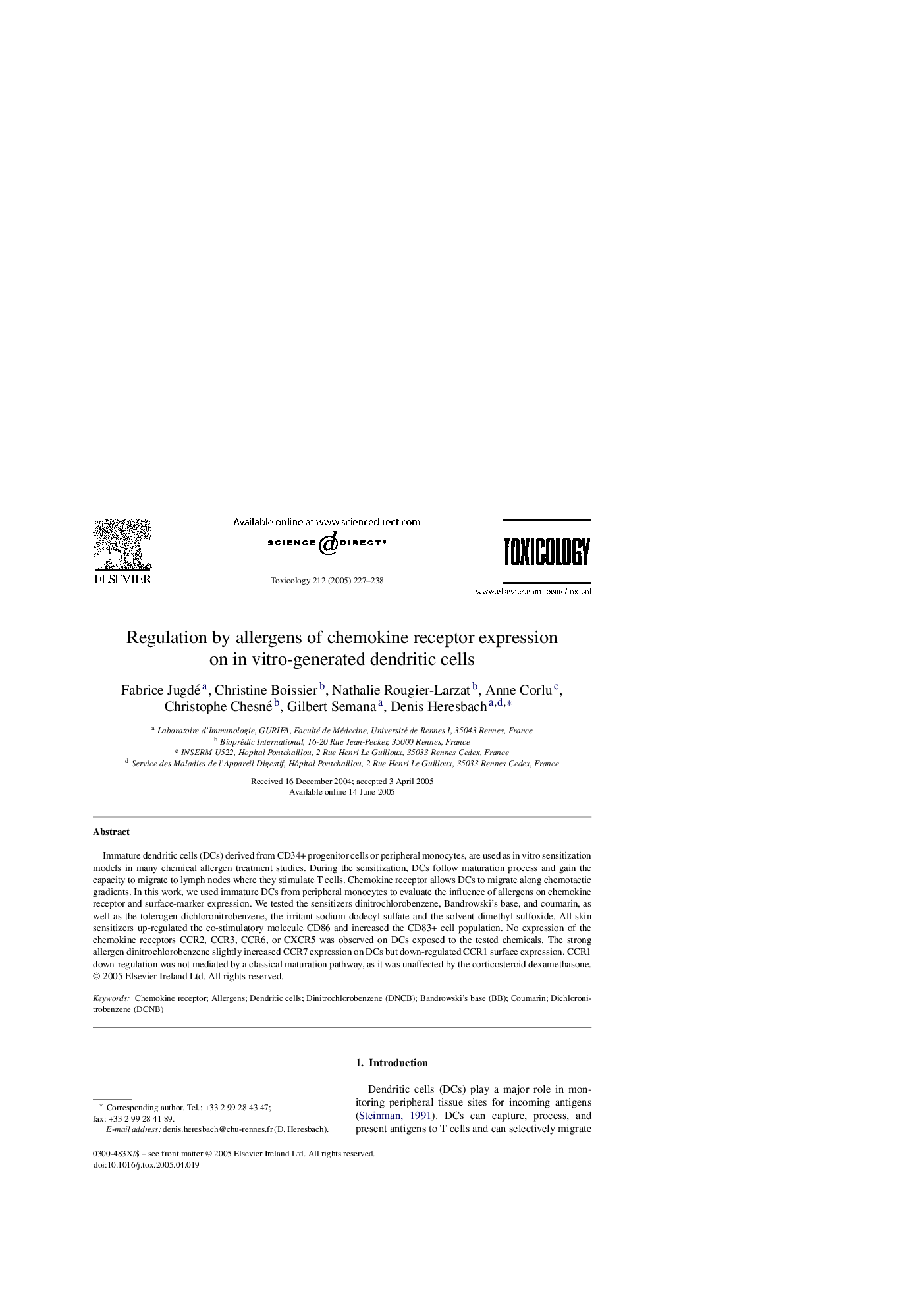| Article ID | Journal | Published Year | Pages | File Type |
|---|---|---|---|---|
| 9034945 | Toxicology | 2005 | 12 Pages |
Abstract
Immature dendritic cells (DCs) derived from CD34+ progenitor cells or peripheral monocytes, are used as in vitro sensitization models in many chemical allergen treatment studies. During the sensitization, DCs follow maturation process and gain the capacity to migrate to lymph nodes where they stimulate T cells. Chemokine receptor allows DCs to migrate along chemotactic gradients. In this work, we used immature DCs from peripheral monocytes to evaluate the influence of allergens on chemokine receptor and surface-marker expression. We tested the sensitizers dinitrochlorobenzene, Bandrowski's base, and coumarin, as well as the tolerogen dichloronitrobenzene, the irritant sodium dodecyl sulfate and the solvent dimethyl sulfoxide. All skin sensitizers up-regulated the co-stimulatory molecule CD86 and increased the CD83+ cell population. No expression of the chemokine receptors CCR2, CCR3, CCR6, or CXCR5 was observed on DCs exposed to the tested chemicals. The strong allergen dinitrochlorobenzene slightly increased CCR7 expression on DCs but down-regulated CCR1 surface expression. CCR1 down-regulation was not mediated by a classical maturation pathway, as it was unaffected by the corticosteroid dexamethasone.
Related Topics
Life Sciences
Environmental Science
Health, Toxicology and Mutagenesis
Authors
Fabrice Jugdé, Christine Boissier, Nathalie Rougier-Larzat, Anne Corlu, Christophe Chesné, Gilbert Semana, Denis Heresbach,
